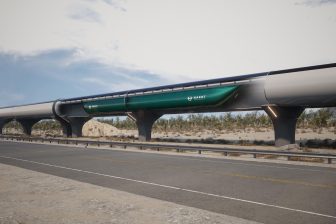No more delays to GALILEO, say MEPs
Brussels, Belgium – In a resolution on the global satellite navigation system GALILEO, Parliament expresses deep concern about the slowing down of negotiations for the franchise contract and voices fears about the increasing overall costs of this EU programme. Any further delays to the project should be kept to a minimum, say MEPs, and GALILEO should be fully operational by 2011.
The deployment and operation of GALILEO, financed by both public and private funds, is supposed to be managed by means of a "concession" issued to a private consortium as part of a public-private partnership. Parliament is "deeply concerned by the fact that the concession negotiations have been at a standstill for several months". Such delays would have a significant impact on the overall cost of the project. MEPs "overwhelmingly" support the clear mandate given to Jacques Barrot, Vice-President of the European Commission responsible for the Galileo Programme, to submit to the June Council:
- a credible roadmap for coming to contractual conclusions as soon as possible;
- possible solutions for securing the long-term financial obligations;
- a scenario for the earliest possible provision of EGNOS satellite navigation services, and;
- alternative scenarios for the realisation of the programme, especially for costs, risk and affordability.
The House also urges the Council to keep any further delays of this project to a minimum. Furthermore, the Commission should submit two progress reports to the Parliament: one by mid-July 2007 and another one "well before" the negotiations reach the point that a revised proposal for a modified legal base for financing the Galileo Programme being made available.
The GALILEO project will be the first major public-private partnership undertaken at EU level. The private franchisee will be responsible for deploying and operating the 30 GALILEO satellites. The European GNSS Supervisory Authority, a public body, is supposed to oversee the private consortium. To ensure better public governance, Parliament calls on the Commission to come forward with a proposal for "clear political responsibility and leadership on the part of the Commission".
The purpose of GALILEO
The EU decided to start its own global satellite navigation programme – GALILEO – in response to the US Global Positioning System (GPS). Its aim is to provide accurate positioning and timing services worldwide for civil applications, says the Commission in its Green Paper on Satellite Navigation Applications. Among its benefits, GALILEO is expected to assist train control systems, search-and-rescue operations in sea and air, emergency management after natural or human-made disasters and exploration of oil and gas resources. The Commission estimates that the market in products and services of global navigation satellite systems (GNSS) will reach €400 billion by 2025. In 2020 some 3 billion satellite navigation receivers – e.g. in cars, mobile phones, banking systems, and energy distribution networks – will be in service.
REF.: 20070420IPR05679
U las zojuist één van de gratis premium artikelen
Onbeperkt lezen? Profiteer nu van de introductieaanbieding voor € 10,- per maand.
Bent u al abonnee?



